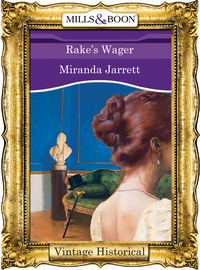
Полная версия
Princess of Fortune
But before he could finish, the double doors between the two rooms flew open and a small, furious woman charged through them, her hands clenched into tight, tiny fists bristling with rings on nearly every finger. Although she was dressed extravagantly for so early in the day—even Tom knew that wine-colored velvet lavished with gold embroidery was not customary at this hour for Berkeley Square, nor were the lavish necklace and bracelets of rubies and pearls—her thick black hair had not yet been brushed, a mass of tangled, knotted curls that bounced against her back with each indignant step.
“Admiral Cranford!” she called, marching directly to the older man, who bowed low in return. Her English was filtered through another language, her accent without apology. “Thank the saints you are here! These women know nothing, worse than nothing! You tell them, Admiral, tell them what imbeciles they are!”
Belatedly Lady Willoughby came hurrying after, the head of the hurled porcelain monkey in her hand as evidence, and her mouth puckered with distress, as if fearing the wrong words would once again slip out.
“The girl came with the best of references, ma’am,” she said plaintively, setting the grinning monkey head on the edge of the mantel. “She has dressed the hair of the Duchess of Kent, and all her daughters. How was I to know she wouldn’t suit?”
“But I am not this Duchess of Kent, am I, eh?” said the young woman, tossing her hair back over her shoulders. “Nor am I one of her daughters, or sons, or small, yapping terriers, either. Ah, perhaps that is what your pretend-maid truly is, a groom to lapdogs! Admiral, Admiral, you see how I am treated, how little respect they show to me!”
Astounded, Tom watched and listened as if it were a Drury Lane farce. The admiral had said that they’d be joined by ladies; he should have warned him instead of this high-handed little harpy. Here he’d been struggling to control himself before his superior, while this chit felt free to rage at Admiral Cranford like a Billingsgate fishwife.
“The maid tends only to fine ladies, not to dogs,” insisted poor Lady Willoughby, wringing her hands. “Brother, I assure you no insult was ever planned or wished for!”
“‘No insult,’ ha,” repeated the younger woman darkly, lowering her chin so her heavy-lidded eyes seemed to smolder with righteous fire. “Would you have me as bald as a pigeon’s egg, then, with every hair ripped from my head? Is that how you would show me honor and respect?”
“Oh, come, ma’am, I’m sure my sister meant no insult,” said the admiral with a forced jollity. “We all want what’s best for you, you know. I’m sure your hair can be set to rights in no time.”
With an exasperated sigh, the younger woman flung her arms in the air, beseeching heaven to take her side and showing a good deal of her breasts in the process.
“Fools and lackeys, every one,” she muttered in Italian. “Toss all their wits together, and it still would not half fill a thimble!”
And that, for Tom, was enough.
“Their manners are worth a bushel of your so-called wit,” he answered in Italian, automatically using the same curt tone that served to humble disrespectful crewmen. “These fine people don’t deserve such rubbish from you. I’d say a dog groom was what you damned well do need, for I’ve never heard any other bitch carry on like you are now.”
The young woman gasped and swung around to face him, lifting her chin high. “Who are you, to dare address me so?” she asked suspiciously, continuing in Italian. “Do you not know who I am?”
“I am Captain Lord Thomas Greaves, miss,” he said with a smile and a brusque bow. “And as for your name, miss, I do not know it, nor do I particularly care if ever I do.”
“There now, Greaves, I knew you’d charm the lady by speaking to her in her own lingo,” said Cranford heartily in English. “But high time I made the proper introductions, aye? Your Royal Highness, might I present Captain Lord Thomas Greaves, the captain I told you about, and a hero if ever there was one. Greaves, the Princess Isabella di Fortunaro of Monteverde.”
“Your Royal Highness. I am honored,” said Tom, though he didn’t feel honored at all. He felt tricked. A princess, and from Monteverde at that. What in blazes was Cranford up to, anyway? Monteverde might be the oldest of the Italian monarchies, but it was also regarded as the most indolent and decadent, with more blissful corruption packed inside its borders than in the rest of the Continent combined. How could one of their princesses come to surface here, in poor Lady Willoughby’s drawing room?
He took a deep breath to control his temper, then another. “Your servant, ma’am.”
But though it was her turn to answer, she didn’t. She simply stared at him, just stared, reluctantly tipping her head back so she could meet his gaze. She was short, true, not that any man would notice her height once he’d seen how seductively rounded her small figure was beneath the red velvet.
She wasn’t pretty, either, not in the agreeable pink-and-white, strawberries-in-cream way that English girls were pretty. Her features were strong, her profile the kind minted into ancient coins. Framed by that tangle of black hair, her skin was golden pale, with a deeper rose to stain her cheeks and lips. And she seemed unable to keep still, constantly shifting and turning and twisting and gesturing, with an actress’s instinct of how best to keep all eyes firmly on her.
No, decided Tom, she wasn’t like English girls. Her beauty was richer, more opulent, like strong claret after milky tea, and likely just as apt to cause a headache and regrets the morning after.
“Your English is most accomplished, ma’am,” he said at last, falling back into Italian. If she was going to insult the others again, at least he could spare them hearing it. “I compliment you.”
Her smile didn’t reach quite her eyes. “Your Italian, Captain, is fit for the barnyard,” she said, reaching up to touch a finger to one dangling ruby earring. “However did you pretend to learn it?”
Well, then, he could smile, too, if that was the game. Any good frigate captain worth his salt recognized a challenge when given, even if it came from a princess intent upon drawing attention to her breasts by tracing her fingertips idly along the edge of her neckline.
“When I was a boy,” he explained, “my father indulged his interest in Vitruvius, and moved our family to Rome for three years. I learned Italian while there, and having often been stationed in the Mediterranean, the language has proved a useful skill.”
“Rome,” she said scornfully with a little flick of her fingers. “That explains so much.”
“Ah, but Monteverde,” he said easily. “That explains even more.”
He half expected her to slap him. If he were honest, he was almost disappointed that she didn’t. Instead she limited herself to a sibilant hiss of frustration between her clenched teeth, and an extra twitch of her dark red skirts away from him.
“I’m so glad you are here, Captain,” gushed Lady Willoughby, her relief so fervent she was nearly weeping from it. “The princess has been so lonely here, without anyone to speak with, and the condition makes her intemperate. You shall make such a difference in her life in London. How happy she must be at last to meet someone like you!”
But the princess did not look happy, nor, for that matter, was Tom himself feeling exactly cheerful. He’d come here at the admiral’s invitation, full of hope for new orders and a ship to match, and now it seemed he’d leave with neither.
“I am glad to oblige, my lady,” he said, switching to English in deference to the confused Lady Willoughby. He was determined to go now that there seemed so little point in staying. “But if you shall excuse me, I’ll say my farewells and—”
“You may not leave my presence without my permission, Captain,” said the princess tartly. “And I do not wish you to go.”
He stared at her, incredulous. “I am an officer in His Majesty’s Navy, ma’am, not one of your wretched subjects.”
“If you were, my father would have you whipped for your insolence,” she said, folding her arms over her chest. “But no matter. You are to be my escort, Captain, my guard while I am exiled here in London. You are to put your life before mine to protect me, and keep me safe from the villains who would wish me harm.”
“Oh, aye, and who wouldn’t?” scoffed Tom. “What makes you believe I’ll take orders from you?”
“Because they do not come from the princess, Greaves, but from your own superiors,” said Cranford sharply, catching Tom’s arm to draw him aside, away from the women and into the corner.
“Blast you, Greaves, haven’t you figured this yet?” Cranford said, lowering his voice as he continued. “Princess di Fortunaro was rescued from Buonaparte by a British navy vessel, and as long as she chooses to stay in England, she will remain under the navy’s protection. That’s His Majesty’s own wish and decision, Greaves, not the princess’s, not mine, and most certainly not yours. It’s the king’s, mind?”
“Aye, aye, sir,” said Tom, his shoulders squared at attention and his expression studiously blank, the only acceptable response for a sailor being dressed down. “I know where my duty must lie, sir.”
“Very well.” Cranford’s voice was flinty, leaving no chink for argument. “These are your orders, Greaves. You will be quartered here in my sister’s house, for as long as the princess also remains as a guest. You will accompany the princess whenever she leaves the house, you will be armed, and you will be ever watchful for her safety and well-being.”
“I am to be the princess’s bodyguard, sir?” This was worse than being a mere clerk in the dockyards. Far, far worse. “Those are my orders, sir?”
“That, and more,” said the admiral. “Because you’re a lord in your own right, you’ll be her escort, invited to attend the same parties and balls and whatever other folderol pleases the princess, and to the palace, of course.”
“She is in such danger, sir?”
“She is a vibrant symbol of resistance to Buonaparte’s forces,” said Cranford firmly, “and in these unsettled times, symbols matter a great deal. Her life could be at constant risk, and yet it is important that she be seen about London, seen by the very scoundrels who would kill her.”
“Aye, aye, sir,” said Tom with gloomy resignation. He would rather face any odds in battle at sea than suffer through this on land.
The admiral clapped him on the shoulder. “Buck up, Greaves,” he said. “It’s not so bad as all that, is it? How many times in your career will you ever receive orders as agreeable as these? Squiring a pretty young princess about London at the height of the season?”
Tom didn’t agree. To be chained to the side of that spoiled creature through an endless round of noisy, crowded parties—damnation, why didn’t he just put the pistol to his own head now, and finish what the French had begun?
He glanced past the admiral’s shoulder. The princess was standing before the fireplace, studying her reflection in the looking glass as she smoothed and braided her hair, using only her fingers. She caught his eye, paused, then looked back into the mirror.
“I had no choice but to learn to dress my own hair while I was trapped upon that verminous warship,” she explained as she deftly coiled the braid and tucked it into a neat knot on the top of her hair. “There was no proper lady’s maid there, either.”
Stunned, Tom watched as she took her bonnet from the waiting maidservant and settled it on her head herself. But it wasn’t just seeing how capably she could braid her own hair after she’d made such a fuss. It was the way she was finishing dressing here in the middle of the drawing room. There was an unsettling intimacy to her movements, a seductive balance between royal propriety and nonchalant display, and almost too late Tom realized he’d been staring at the way her breasts pushed higher when she lifted her hands to place her hat.
“If only I had known, ma’am,” began Lady Willoughby, unable to keep the plaintive exasperation from her voice. “If only you had told me you could do—that is, that you knew how you liked your hair dressed, why, surely we could have—”
“Just because I can, Lady Willoughby, does not mean I should.” The princess held out her arms so the maid could drape a paisley cashmere shawl over her shoulders. “Pray recall who I am before you make another such suggestion. Now come, Captain Greaves. The carriage should be waiting, or at least it shall if that has not been bungled like everything else.”
“You are leaving, ma’am?” Tom uneasily realized he was to be included in her plans. “You have an invitation?”
She folded her arms before her, the long tassels on her shawl hanging down nearly to her knees. “I am going anywhere outside this prison of a house. Beyond that, I neither know nor care.”
Without waiting for Tom’s answer or even to see if he followed, she swept grandly from the room and toward the front door, leaving Lady Willoughby to once again scurry along in her wake.
“Women.” Cranford shook his head, as if that single word could sum up all the world’s real ills. “You’ll need a pistol before you accompany the princess, Greaves. Unless, of course, you are carrying one at present.”
“No, sir.” Tom could not believe that these really were his new orders from the admiralty, to trail around London like an armed nursemaid after a spoiled princess. Damnation, he didn’t want to believe it.
“These shall see you through.” Cranford opened the top drawer of the sideboard and took out a long pistol box, holding it open for Tom to choose which gun he preferred. So all of this had been planned from the start, even his acceptance, and as he lifted the nearest gun from the case, he wondered if even that, too, had been preordained. There was nothing fancy about the gun, a standard-issue pistol such as any sailor would carry into battle, yet Tom found the familiar feel of such a gun in his hand oddly comforting. At least something in this morning was as it should be.
“I do not expect you to train that upon every greengrocer’s window, Greaves.” The admiral watched with approval as Tom raised his arm to test the gun’s sight. “After all, we’re in London, not the Peninsula. It’s more a precaution than anything, a way of letting the rest of the world know you are serious about the princess’s well-being. Most of the villains who could bring her any real danger are cowards, anyway, and simply being at her side should be enough to scare them away.”
“I shall follow my orders, sir.” Tom took the plain leather belt that the admiral offered, buckled it low around his waist and hooked the pistol to the ring on the side. It wasn’t exactly the height of London fashion, hanging there over his waistcoat, but it would serve the purpose that the admiral wished.
The admiral nodded. “I never doubted you’d do your duty, Greaves. You’re an officer of the king, and you’ll do whatever is necessary. While you are out with the princess, I’ll have word sent to your lodgings to have your dunnage packed and sent here. You have a manservant?”
“John Kerr, sir. He has been with me since my first command.” Old Kerr would be as disappointed about these new circumstances as Tom was himself, and just as unhappy that they wouldn’t be returning to sea.
“Then I shall make certain my sister has a place for him here, as well.” The admiral unstopped the decanter of port on the sideboard, poured it into two glasses and handed one to Tom. “Here you are. You might need a little fortifying, eh?”
Tom took the glass, the sun turning the liquor golden between his fingers. The surgeons had advised him against drinking, fearing the toll that alcohol might take on his heart, but when he thought of the woman waiting for him in the carriage outside, he decided the risk was worth it. If the port did kill him, then he wouldn’t have to join her after all.
“Long live the king.” Cranford lifted his glass, and Tom did, too. “And confusion to the French.”
“Confusion to the French,” echoed Tom, “especially in Monteverde.”
He downed the port in one long swallow, feeling its heat ripple through him. He stood very still, glass in hand, and waited for the shock, or stabbing pain, or whatever it was that the liquor was supposed to do to him.
But nothing happened. The songbirds in the garden outside were still chirping among the roses, the admiral’s nose was still red, and he, Captain Lord Thomas Greaves, was still very much alive.
“Best you were off, Greaves.” The admiral set down his glass, wiping his mouth with the length of his finger. “The princess will not like to be kept waiting.”
No, she wouldn’t. Tom didn’t need to reread his orders to know that, and with a last bow to the admiral, he headed toward the front door, the pistol heavy against his hip and the prospect of guarding Princess Isabella di Fortunaro a burden he couldn’t escape.
Chapter Three
I sabella stood exactly in the center of Lady Willoughby’s front hall and tried hard—very hard—to keep from losing her temper. It was hot in the airless space, with the doors and windows closed tight and the afternoon sun streaming in through the fan light overdoor. Inside Isabella’s black lace gloves, her hands were sweating, and the long curving feather on her bonnet kept tickling the nape of her neck in a most annoying fashion. The tall case clock ticked away each second with a solemn finality, counting off the wasted minutes that Captain Lord Thomas Greaves was making her wait.
She did not like waiting. She never had, and she never should, considering her rank, but she was determined to give him the benefit of the doubt for this first time. It might not be his fault. Likely the admiral was keeping him with some sort of nonsense, the foolish old man. She would be gracious, and grant the captain the favor of her patience.
But if he ever dared keep her waiting like this again—ah, she would not forgive him, ever.
“I am sure the captain will here shortly, ma’am.” Lady Willoughby gave Isabella her usual watery smile. “He seems like a very nice gentleman.”
Isabella sniffed. “He has not been brought here to be nice. He is here to keep me safe.”
Once again she looked out the long window beside the door. Lady Willoughby’s glossy green carriage with the matched grays was sitting there waiting at the curb, taunting her with the freedom it represented. She didn’t care if the others believed she was exaggerating: she was a prisoner. This was the closest she’d been to leaving this house since she’d been brought to it in the middle of the night, three weeks before, and she could not wait to feel the warmth of the sunlight and the breeze across her skin, and to see more of the city beyond this single boring square.
“I am very sorry, princess,” Lady Willoughby said, as if she could read Isabella’s thoughts, “but I cannot let you go alone. For your own good, you see. You must wait for the captain to escort you to the carriage.”
Isabella frowned, glancing pointedly at the two large footmen standing ready to barricade the door if she tried to escape.
“Oh, yes, of course, you silly goose,” she muttered in Italian, as much to irritate the other woman as to keep her own comments safe. “We cannot tax the gaolers hired to keep me caged like an animal, can we?”
“Yes, just so.” With no notion of what the princess had said, Lady Willoughby smiled again, even as she wrung her hands with despair. “I’m sure when the captain comes, you shall have the nicest drive imaginable.”
Isabella smiled in return and kept speaking in Italian. “True, true, true, quite the nicest, once you give the captain my leash to hold for himself.”
She couldn’t play such tricks on Captain Lord Greaves. How could she have known that Cranford would have found even a single man in this country to speak Italian so well? Tears had started to her eyes when she’d heard the familiar, rolling words, she’d been that struck with sudden homesickness, and for one horrible moment she’d gasped aloud from the shock. But after that she’d managed to hide her feelings, the way a princess always must. She hadn’t let the captain know how surprised she’d been or how lonely she’d felt, and she certainly hadn’t revealed that she’d found him passing handsome, too.
He wasn’t like the other English sailors she’d met on the interminable voyage here, rough, ill-spoken men with dreadful battle scars and missing teeth, and he wasn’t like the sorry old warhorses the admiral had first introduced her to, either. This captain stood straight and proud, his dark blue uniform tailored to show off his broad shoulders and flat stomach. He had fire to him, too, a challenge in his blue eyes and a bite to his smile, and he hadn’t been afraid of her. That was rare, and she liked it.
To be sure, he hadn’t shown her one iota of the respect due her rank, but she could teach him that. He was English, and even an English lord like Captain Greaves could not be expected to understand the finely detailed etiquette of the Monteverdian court. But he seemed clever enough. After these last long, lonely weeks, she would welcome any such challenge, an amusing way to pass the days until Buonaparte was defeated and she could sail for home.
Behind her she could hear his measured footsteps at last coming down the hall to join her, just as she could hear Lady Willoughby’s little birdlike exclamations—such a meek and spineless creature!—as she rushed to greet him. But Isabella didn’t turn, not at first, keeping her face well hidden inside the curving silken arc of her bonnet’s brim.
His first lesson would be simple enough. She would not jump for the delight of his company. He must come to her, and be grateful for her notice.
“What detained you, Captain Greaves?” she asked at last, without turning. “You knew that I wished to leave directly.”
She knew he couldn’t ignore her, not only because of his orders, but because she’d taken care of exactly where she stood. She’d learned that from watching her mother, another of royalty’s little tricks. The sunbeams slicing through the fan light must be making the red velvet of her gown glow like a flame against the stark black and white of the marble floor. How could he possibly be looking anywhere else? It was difficult being a small woman, particularly here in England where the females seemed all to be great gangly storks, and she must rely upon such careful planning to keep attention focused on her.
And for extra emphasis, she let his silence stand for another half beat before, at last, she broke it.
“You have no answer for me, Captain?” She turned, just enough to look over her shoulder, and she did not smile. “No explanation for your delaying me?”
He bowed, his wavy hair falling forward over his brow. “Is there any explanation that would be acceptable to you, ma’am?”
“No. There is not.” She was surprised that he’d answered her question with a question, and surprised, too, that he wouldn’t tell her the obvious reason, that he’d been with the admiral. Unless he hadn’t—a possibility that annoyed her even as it piqued her curiosity. “But no explanation is no excuse, either.”
“I didn’t claim that it was, ma’am.” One of the footmen handed him his gold-trimmed hat, and he settled it squarely on his head, as if preparing for battle. “Is the carriage here, Lady Willoughby?”
“Yes, Captain my lord.” Nervously, Lady Willoughby peered out the window, just to be certain, as if the carriage might have somehow been whisked away by thieves when she wasn’t looking. “But at my brother’s request, I have kept the princess within the house until you joined her.”
“‘Within, within!’” Unable to contain her impatience, Isabella flung one end of the tasseled shawl over her shoulder. “You have done nothing but keep me within, Lady Willoughby, ever since I came here! You might as well have locked me in your darkest dungeon, behind bars of iron, for all that I have been your prisoner!”
“If that is the case, ma’am,” he said, taking her by the elbow without waiting for permission, “then we had better go without.”
She began to pull her elbow away, not liking such familiarity, but then the two footmen blocking the door parted for Isabella and the captain like Moses at the Red Sea. The door swung open, too, and they were outside, on the steps—free!—and Isabella forgot all about the hand at her elbow.








